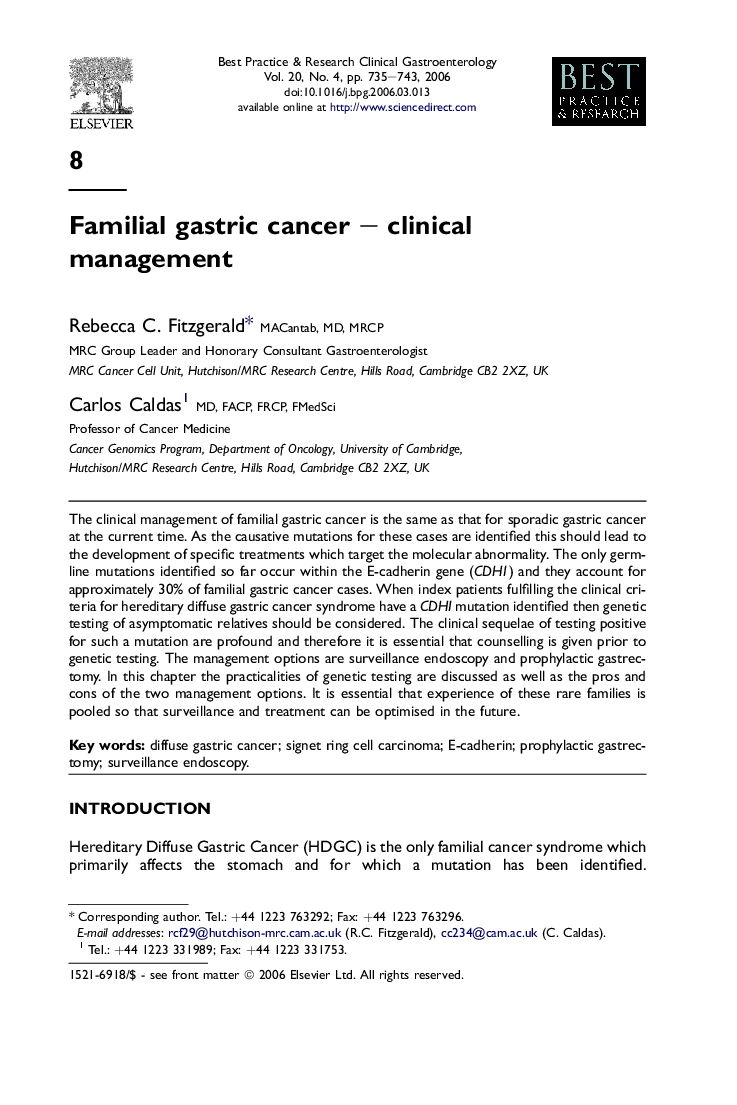| Article ID | Journal | Published Year | Pages | File Type |
|---|---|---|---|---|
| 3254828 | Best Practice & Research Clinical Gastroenterology | 2006 | 9 Pages |
The clinical management of familial gastric cancer is the same as that for sporadic gastric cancer at the current time. As the causative mutations for these cases are identified this should lead to the development of specific treatments which target the molecular abnormality. The only germline mutations identified so far occur within the E-cadherin gene (CDHI) and they account for approximately 30% of familial gastric cancer cases. When index patients fulfilling the clinical criteria for hereditary diffuse gastric cancer syndrome have a CDHI mutation identified then genetic testing of asymptomatic relatives should be considered. The clinical sequelae of testing positive for such a mutation are profound and therefore it is essential that counselling is given prior to genetic testing. The management options are surveillance endoscopy and prophylactic gastrectomy. In this chapter the practicalities of genetic testing are discussed as well as the pros and cons of the two management options. It is essential that experience of these rare families is pooled so that surveillance and treatment can be optimised in the future.
